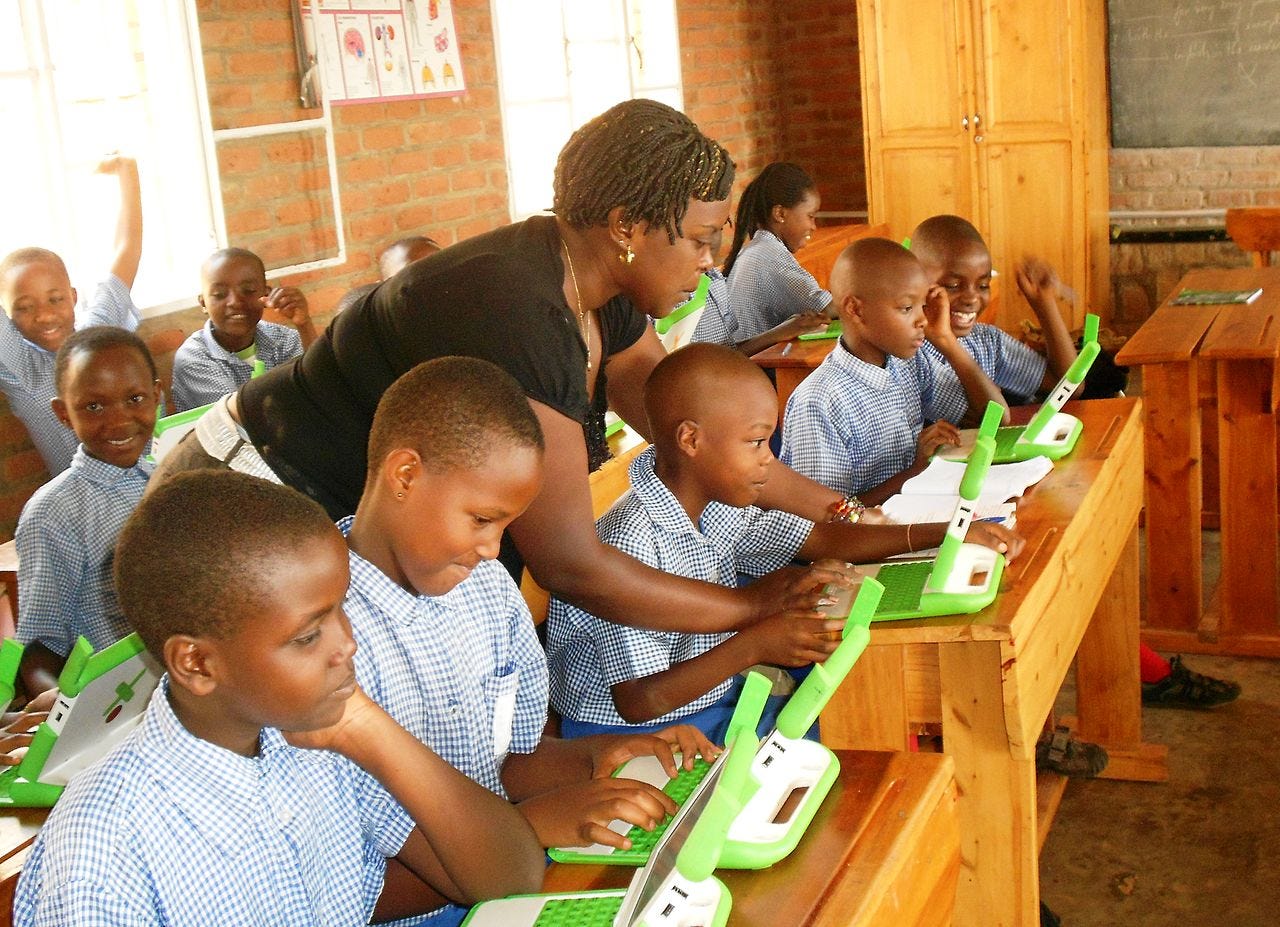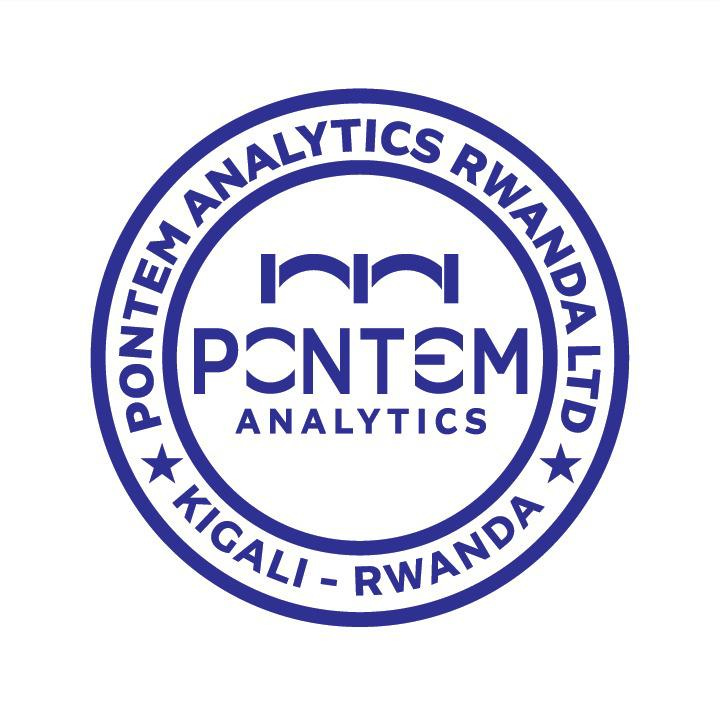Strategic Academic Partnerships
Shaping Education for the Present and Future
Last week, I wrote an article on “Strategic Business Partnerships”, stating the strides Pontem Analytics has made in West Africa by partnering to expand reach into other parts of Africa. Partnerships play a pivotal role in today's interconnected world, fostering collaboration and synergy across various sectors and industries. By joining forces with like-minded organizations, businesses can leverage complementary strengths, resources, and expertise to achieve mutual goals and drive innovation.
This week, my article showcases Pontem Africa’s “Strategic Academic Partnerships”, our engagement with government and universities in shaping education and our commitment to supporting the educational system in Rwanda. With our desire to play a part in eradicating energy poverty in Africa, we are aware that investment in education, updating of academic curriculum and internships will build a workforce ready to take on the challenge in the industry. Our partnership with University of Rwanda is one of note and has led to internships, stakeholder engagement to improve student learnings and curriculum design, and we are exploring other collaboration in research. This article also addresses education’s role in addressing energy poverty and fostering economic growth in Africa.
Introduction
Education plays a pivotal role in the economic development of a nation and in the eradication of poverty. By equipping students with the skills and knowledge needed for future job opportunities, education prepares them to contribute effectively to the workforce and increase overall economic productivity.
Collaborating with the private sector to design curricula ensures that students are trained in areas relevant to current and emerging industries, such as energy (fossil fuels and renewables, respectively). By gaining the right skills through such partnerships, students can become valuable exports to other African countries, aiding in their development efforts and ultimately reducing energy poverty across the continent with the knowledge gained. Therefore, investing in education not only empowers individuals but also fuels economic growth and facilitates regional development initiatives.
“Education is the most powerful weapon which you can use to change the world.”
Nelson Mandela
Pontem Analytics consistently seeks avenues to uplift the communities where it operates while advancing the boundaries of knowledge. Recognizing the significance of universities in cultivating a highly skilled workforce, it underscores the importance of fostering collaboration between academia and industry. This symbiotic relationship not only benefits the private sector and various industries but also shapes education policies and influences curriculum development.
Recently, on March 29th, 2024, I participated in an exclusive event advocating for industry leaders to join forces with universities. The goal was to chart a path towards enhancing student learning experiences and educational initiatives.
University of Rwanda Stakeholders’ Interface
Towards the university we want
The gathering, attended by esteemed figures including the Honorable Minister of Education for Rwanda, the Vice Chancellor of University of Rwanda, the Chief Executive Officer of WASAC Rwanda, and the Executive Director of People and Culture for Bank of Kigali, highlighted the critical need for collaboration between academia and industry. In his opening remarks, the Vice Chancellor provided insights into the university's background, structure, and achievements, which I have outlined below.
Established in 2013, the University of Rwanda stands as a premier public collegiate institution situated across multiple campuses in Kigali, Rwanda. It emerged from the consolidation of several pre-existing educational establishments, now serving as the largest educational entity in the nation. Recognized as the top-ranking university in Rwanda by the Higher Education Council, a governmental body, it comprises six autonomous colleges spread across eight campuses. Among its notable features are four African Centers of Excellence, endorsed by the World Bank, including the esteemed African Centre of Excellence in Data Science. As of the 2021–2022 academic session, the university boasted an enrollment of 31,506 students, encompassing 2,058 in master's programs and 324 pursuing Doctoral degrees.
During the panel discussion, key stakeholders from government and the private sector offered their perspectives. Drawing from my experience as an external lecturer in the University of Aberdeen’s MSc Subsea Engineering program, I emphasized the need for the University of Rwanda to collaborate closely with the private sector to tailor its curriculum to the demands of current and future jobs. I underscored the importance of internships in providing students with practical experience and preparing them for the industry and emphasized that education should be dynamic, evolving to meet industry needs, as static curriculum can lead to obsolescence.
I offered different initiatives in private conversations with the Honorable Minister of Education for Rwanda and the Vice Chancellor of University of Rwanda.
“University and the industry should play a role in the development of students; the university’s role is to prepare students for the industry, meaning that the industry is a key and critical stakeholder in education. In education curriculum development, industry should be engaged to articulate the skills required. Anyone who studied computer science ten years ago without any further training to be abreast of current trends will be obsolete. Education is not static, and the curriculum should not. It should evolve according to the needs of the industry.”
Temitope Solanke, Pontem Africa
Awards for exceptional students presented at the University of Rwanda Stakeholders’ Interface event - Pontem keeps giving.
As part of the above event, the awards and prizes at the University of Rwanda graduation ceremony were officially presented to the awardees. Pontem Analytics continues its commitment to supporting academic excellence by sponsoring awards at the University of Rwanda's award ceremony. The article link below shows Pontem’s presentation of awards to the Honorable Minister of Education of Rwanda and Vice Chancellor of University of Rwanda. Click here.
These awards serve as an incentive for both current and graduating students to uphold the university's tradition of excellence and to remain dedicated to their studies, laying a strong foundation for successful careers in the industry. Pontem's sponsorship underscores its dedication to nurturing talent and promoting academic achievement in the field of data science, further reinforcing its commitment to advancing education and empowering future leaders in Africa.
Preparing Rwandan students for the skills required to eradicate energy poverty.
Energy poverty remains a central focus in Pontem Africa's communications, as it stands as a significant impediment to Africa's advancement in the global industrial landscape. The continent's limited access to energy has hindered its participation in this transformative process. Addressing this issue necessitates the cultivation of a vast pool of highly skilled professionals, appropriately trained by academic institutions, to participate in the energy sector. During a panel discussion at the Uganda International Oil and Gas Summit in 2023, I expressed that Pontem Analytics advocates for a comprehensive approach to energy poverty, embracing a diverse range of sustainable energy sources, including renewables, to effectively address this challenge in Africa and worldwide. To meet these challenges, a lot more needs to be done to shape the education curriculum to prepare students for the jobs of today and tomorrow.
Pontem Analytics providing internship opportunities for Rwandan students.
Pontem Analytics has initiated collaborations with the University of Rwanda and other educational institutions in the region to offer internship opportunities for students. Following the initial round of selections, interns from the University of Rwanda and the African Leadership University have been offered positions. These interns, specializing in software engineering and data science, have gained exposure to Pontem's global projects, particularly those focusing on optimizing production engineering. While Pontem primarily operates in the energy sector, it recognizes the growing importance of data in today's world, it is also important to note that "Data is the new Oil," emphasizing the invaluable role that data plays in shaping our modern world. The students from data science background, while not from the typical chemical engineering background that most in production assurance engineering at Pontem are from, bring skills to bridge the gap between data and discipline. Does that sound familiar? That is the slogan at Pontem Analytics – “…bridging the gap between data and discipline”. At Pontem, we are a team of high-level engineers, chemists, and data scientists, with a stated mission to bridge the gap between domain knowledge and data. By linking fundamental science with advanced data analytics, we think there is a good opportunity to provide robust answers to very challenging and complex issues. I digress.
Pontem Africa has invested in comprehensive training programs for its data scientists, both internally and through external courses, aimed at bolstering their expertise in data science and production engineering. Pontem is building a team that can actively get involved in increasing production of oil and gas and optimization of costs and operations of same in Africa. Collaborative efforts between industry and academia to provide internships that prepare students for current and future job roles can empower Africa's participation in the industrial revolution and help alleviate the energy poverty plaguing the continent's development.
In a publication shared in April 2024, Kwizera, a data scientist pursuing an MSc in Data Science at the University of Rwanda and interning at Pontem Africa, expressed his views.
“At Pontem Analytics, I collaborate with a team of exceptionally skilled, driven, and seasoned professionals in the ambitious pursuit of advancing data science applications within various sectors mainly the oil and gas sector. We are currently working on the development of a sophisticated Python parsing library tailored specifically to Pontem Analytics. This comprehensive library is meticulously designed to encompass a spectrum of functionalities, including robust data preprocessing and cleaning mechanisms. We ensure the integrity and quality of the data before analysis. Moreover, our library facilitates complex calculations essential for various analytical tasks within the domain and has the flexibility to be imported and used in Excel.”
Kwizera Erneste, Data Scientist, Pontem Africa
This is a testimonial of the importance of the academia-industry partnership and Pontem Analytics is proud to add its quota improving education in Africa. Given our positive stories and feedback, there are some in the public discourse who view internships as a cost. We, at Pontem, could not be more against that notion, because we see internships as an investment, and this must be emphasized so that the younger demographic understands the value we place on them. The cost of not providing the right education (which internships are a big part of) is more expensive and leads to a workforce that is unprepared for the challenges of the industry. At Pontem, we believe education is so important that it is worth the somewhat painful initial investment.
Meet some of our data scientists!
Meet Afsa Umutoniwase
Hailing from Rwanda, Afsa Umutoniwase is currently pursuing a bachelor's degree in software engineering at African Leadership University (ALU), where she has demonstrated exceptional academic performance and a strong commitment to excellence. Complementing her education at ALU, Afsa undertook specialized courses offered by ALX, including the ALX Data Analytics program and the AiCE (Artificial Intelligence Career Essentials) course, to enhance her skills in data analysis and AI technology. As a Data Scientist at Pontem Analytics, Afsa brings her passion for continuous learning and her expertise in data analytics and software engineering to the forefront. Drawing from her upbringing in rural Rwanda and her firsthand observations of agricultural challenges, Afsa embarked on a pioneering Smart Irrigation System project aimed at improving farming practices. She recently authored an article titled "From Grandma's Field to Green Revolution: One Student's Tech Dream for Rwandan Farmers," exploring the transformative potential of her project and its impact on revolutionizing agriculture in Rwanda. You can read more about her insights and experiences in the article below.

Meet Kwizera Erneste
Kwizera Erneste is a solution-oriented data scientist who aspires to apply various data science techniques in different sectors and contribute to data-driven decisions. His enthusiasm for data science was ignited during his tenure in software development, crafting numerous digital solutions across diverse sectors such as education, healthcare, and inventory management. It was during this time that he recognized the significant volumes of data being generated by these solutions, prompting him to conceive the idea of leveraging this data to drive informed actions. This led him to develop intelligent systems capable of providing real-time responses. More of this is found in his article about his transition from software engineering to data science. For more info on the article below.

He is currently pursuing a master's degree in data science at the University of Rwanda's African Center of Excellence in Data Science. As a data scientist at Pontem Analytics, Kwizera adds value to the team with his diverse coding experience and data science skills.
Primary Education plays a pivotal role in Africa’s development.
Primary education serves as the cornerstone of a nation's educational system, laying the foundation upon which future learning and development are built. While tertiary education often receives significant attention for its role in economic advancement, the importance of primary education cannot be overstated. It is at the primary level that fundamental skills such as literacy, numeracy, critical thinking, and problem-solving are acquired, providing students with the essential tools for lifelong learning and success.
In the context of Africa's development, prioritizing primary education is paramount for several reasons. Firstly, it ensures that all children, regardless of their socioeconomic background, have access to basic education, thus fostering inclusivity and reducing inequality from the outset. Pontem Analytics understands that no child should be left behind in the pursuit of education in Africa. That is why Pontem Analytics awarded 1-year full scholarships to thirteen children from deprived homes through The Evangelical Restoration Church, to ensure that even those without means have a shot at good education and can become responsible members of the society. You can read more about this in the article below.
By investing in primary education, African countries can empower their youth with the knowledge and skills needed to participate meaningfully in society, contribute to economic growth, and break the cycle of poverty.
Moreover, primary education acts as a precursor to secondary and tertiary education, laying the groundwork for further academic pursuits and specialized training. A strong primary education system not only prepares students for more advanced learning but also instills a love for learning and curiosity that can propel them throughout their educational journey.
Additionally, primary education plays a crucial role in promoting social cohesion and national development. By providing children with a quality education early in life, societies can cultivate informed citizens who are equipped to actively engage in civic life, uphold democratic values, and contribute positively to their communities.
To truly harness the transformative potential of primary education, concerted efforts are needed to address key challenges such as access, quality, and equity. Governments, in collaboration with stakeholders, must prioritize investments in infrastructure, teacher training, curriculum development, and support systems to ensure that every child receives a quality primary education. Pontem is exploring ways of supporting these initiatives.
Summary
Africa holds so much potential for economic development and eradication of energy poverty. To achieve this, the continent requires a concerted focus on primary to tertiary education, which should be supported by industry cum private sector in the areas of investment to help ensure that youths are able to participate in the education system, curriculum development and internship opportunities.
The collaboration between academia and industry provides an opportunity for students to be prepared for the jobs of today and tomorrow. Pontem Analytics has been a supporter of investing in education and have made meaningful contributions in Rwanda, by providing scholarships for students from primary education level to being involved, as a stakeholder, in crafting the path to a more future-focused education in Rwanda and providing internships to youths. By placing greater emphasis on primary education and ensuring universal access to quality schooling, Africa can unlock the full potential of its youth, build human capital, and pave the way for a brighter and more prosperous future.
In conclusion, the eradication of energy poverty and the illumination of Africa’s path from darkness to light, from poverty to prosperity, can only be possible if Africa invests in the development and education of its youths.
Education is the movement from darkness to light.
Allan Bloom








